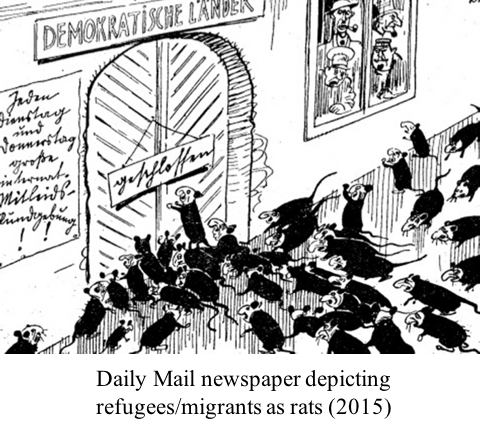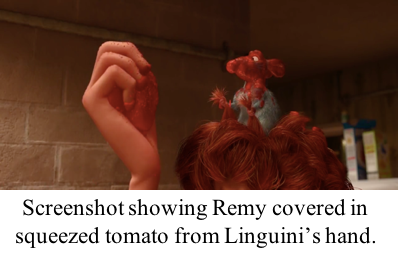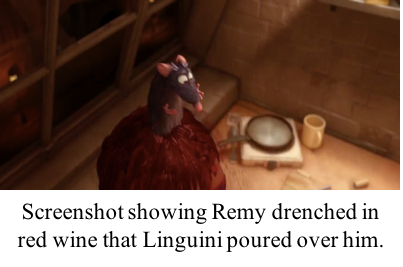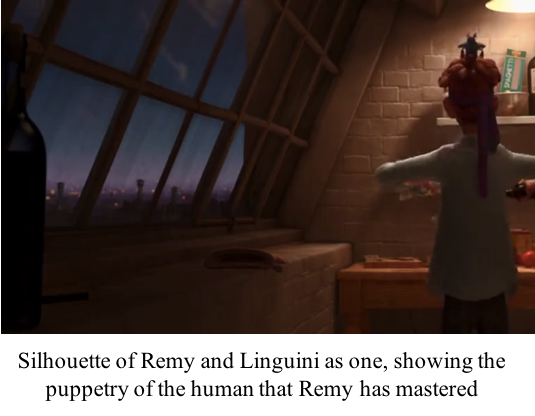Within Ratatouille, the scene in which Remy figures out that he is able to control Linguini, Brad Bird confounds expectations through undermining the stereotype about the animality of rats, and using the rats as symbols for immigrants. This interaction challenges the human/animal binary and strengthens the anthropomorphism of Remy.
The director, Bird, suggests unity within this scene of two entirely different cultures.With the rat traditionally being a symbol of alien, unwelcome immigrants, it is clear to see that Bird is presenting Remy to the audience as an upward mobile immigrant intellectual in a foreign world. He is a skilled chef and attempts to find his place in a foreign realm, where the notion of the American Dream is central to Remy’s motivation. He engages with the host culture and is able to integrate himself into it. Thus, in contrast to the high frequency of shot transitions highlighting the franticness of what is happening in the kitchen at the beginning of the scene, the calm finish emphasises how Remy has successfully transcended the border from the rat world into the exclusively human world of the kitchen mirroring immigrants’ successful transcendence from their world into other cultures.

In contrast to the unified relationship between Remy and Linguini, the audience is given subtle reminders to normal human relation to rats. This is portrayed through Linguini soiling Remy with the tomato, and the red wine, invoking images of blood and consequently the death of a rat caused by human. The scene clearly shows Remy trying to cross the human/animal binary completely through learning how to literally be a human. Remy learns to do everything human: use a human kitchen, a human body, and human utensils. However, through the obstacles that he encounters, it is as though he is being rejected from crossing. The images of death portray the unfortunate truth that Remy will always be a rat, and that humans will always view him as a diseased, unhygienic rodent. Although he might be able to occupy a human and live in harmony within the human world for a short period, social inequality is inevitable as Remy’s rat status will never change. This echoes at the end of the film when Gusteau’s is shut down by the health inspector, and although they open up a new restaurant, there is the inevitability that the health inspector will shut them down again.



By submitting total control of his senses of sight, smell, and taste, Remy establishes dominance over Linguini. He becomes the shell that Remy navigates in order to learn how to adapt into a foreign, daunting and threatening human world. Directing this Linguini-shell, he conducts the uniquely human task of cooking in attempt to surpass the animal binary into the human. The amplified diegetic sound of Remy sniffing the food and pulling the hair elevates the Remy’s sounds to of equal importance as the sounds Linguini makes. Now in complete control of a human body, and his sounds of an equal importance, he can finally be noticed and respected in the human binary. Due to this, however, the extent to which Remy has to be human undermines the message of meritocracy where anyone can achieve what they desire if they work hard. Through anthropomorphising Remy by standing on two legs, savouring the taste of food, and learning to control a human, he is being accepted by the human world because he has more characteristics of a human than of a rat. The willingness to conform and act differently to achieve dreams and desires seems to be a stronger message than suggesting achievement through hard work.